31 aug 2016
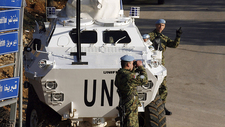
Security Council extends mandate of UN peacekeeping force in southern Lebanon, expresses concern at 'limited progress made towards the establishment of a permanent cease-fire.'
The UN Security Council warned Tuesday that violations of the cessation of hostilities agreement between Lebanon and Israel could lead to a new conflict "that none of the parties or the region can afford."
The council's warning came in a resolution adopted unanimously Tuesday extending the mandate of the UN peacekeeping force in southern Lebanon that monitors the cessation of hostilities until Aug. 31, 2017. It maintained the mission's ceiling at 15,000 troops, supported by international and local civilian staff.
The council expressed concern "at the limited progress made towards the establishment of a permanent cease-fire."
It urged all parties "to make every effort to ensure that the cessation of hostilities is sustained, exercise maximum calm and restraint and refrain from any action or rhetoric that could jeopardize the cessation of hostilities or destabilize the region."
A Security Council resolution ordering a cessation of hostilities ended the 34-day war between Israel and Hezbollah militants in southern Lebanon in the summer of 2006. The fighting left some 1,200 Lebanese and 160 Israelis dead, and ended in a stalemate.
The UN force, which has been in southern Lebanon since 1978, was expanded after the 2006 war so peacekeepers could deploy along the border with Israel to help Lebanese troops extend their authority into the south for the first time in decades.
Tensions in Lebanon have been growing over the politicians' failure to agree on a new president and an ineffectual government and parliament that barely meets. The country has so far survived the chaos of more than five years of conflict in neighboring Syria, but there are mounting concerns of a major security breach or renewed conflict with Israel as the regional conflict worsens.
The resolution adopted Tuesday condemned "in the strongest terms all attempts to threaten the security and stability of Lebanon." It underlined "the risk that violations of the cessation of hostilities could lead to a new conflict that none of the parties or the region can afford."
The Security Council commended the positive role of the UN peacekeeping force, known by the acronym UNIFIL, for helping to establish "a new strategic environment in southern Lebanon" along with the Lebanese Armed Forces.
UN Secretary-General Ban Ki-moon noted that during the past 10 years UNIFIL's area of operation in southern Lebanon and along the UN-drawn "Blue Line" demarcating the border with Israel "have witnessed the longest period of relative calm in decades," his spokesman said.
But while praising the efforts of Lebanon and Israel, the UN chief underscored "that calm should not be mistaken for progress" on implementing the 2006 resolution and others, UN spokesman Stephane Dujarric said. The 2006 resolution, among other things, call for all militias, including Hezbollah, to be disarmed—a demand that has been ignored for 10 years.
"The violent and unstable regional context emphasizes the importance of tangible progress by the parties toward a permanent ceasefire, as envisaged in the resolution," as well as ensuring that the cessation of hostilities is sustained, Dujarric said.
The UN Security Council warned Tuesday that violations of the cessation of hostilities agreement between Lebanon and Israel could lead to a new conflict "that none of the parties or the region can afford."
The council's warning came in a resolution adopted unanimously Tuesday extending the mandate of the UN peacekeeping force in southern Lebanon that monitors the cessation of hostilities until Aug. 31, 2017. It maintained the mission's ceiling at 15,000 troops, supported by international and local civilian staff.
The council expressed concern "at the limited progress made towards the establishment of a permanent cease-fire."
It urged all parties "to make every effort to ensure that the cessation of hostilities is sustained, exercise maximum calm and restraint and refrain from any action or rhetoric that could jeopardize the cessation of hostilities or destabilize the region."
A Security Council resolution ordering a cessation of hostilities ended the 34-day war between Israel and Hezbollah militants in southern Lebanon in the summer of 2006. The fighting left some 1,200 Lebanese and 160 Israelis dead, and ended in a stalemate.
The UN force, which has been in southern Lebanon since 1978, was expanded after the 2006 war so peacekeepers could deploy along the border with Israel to help Lebanese troops extend their authority into the south for the first time in decades.
Tensions in Lebanon have been growing over the politicians' failure to agree on a new president and an ineffectual government and parliament that barely meets. The country has so far survived the chaos of more than five years of conflict in neighboring Syria, but there are mounting concerns of a major security breach or renewed conflict with Israel as the regional conflict worsens.
The resolution adopted Tuesday condemned "in the strongest terms all attempts to threaten the security and stability of Lebanon." It underlined "the risk that violations of the cessation of hostilities could lead to a new conflict that none of the parties or the region can afford."
The Security Council commended the positive role of the UN peacekeeping force, known by the acronym UNIFIL, for helping to establish "a new strategic environment in southern Lebanon" along with the Lebanese Armed Forces.
UN Secretary-General Ban Ki-moon noted that during the past 10 years UNIFIL's area of operation in southern Lebanon and along the UN-drawn "Blue Line" demarcating the border with Israel "have witnessed the longest period of relative calm in decades," his spokesman said.
But while praising the efforts of Lebanon and Israel, the UN chief underscored "that calm should not be mistaken for progress" on implementing the 2006 resolution and others, UN spokesman Stephane Dujarric said. The 2006 resolution, among other things, call for all militias, including Hezbollah, to be disarmed—a demand that has been ignored for 10 years.
"The violent and unstable regional context emphasizes the importance of tangible progress by the parties toward a permanent ceasefire, as envisaged in the resolution," as well as ensuring that the cessation of hostilities is sustained, Dujarric said.
21 apr 2016
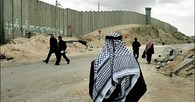
Israel is gradually walling off further parts of its northern borders, claiming the fence is being pitched for fear of imminent threats from Lebanon.
Israel’s Channel 2 news showed sections of concrete wall being installed near to Misgav Am, a border settler community in the Upper Galilee.
According to Channel 2, reports have been recently released on large scale operations along the borders with Lebanon.
It noted that a project to bolster the border area had been underway for some time and that a similar project is set to kick off sometime soon to fence off the Metulla area.
Over recent days, the Israeli army has held military drills in anticipation of possible infiltration from Lebanon via the northern borders.
Israel’s Channel 2 news showed sections of concrete wall being installed near to Misgav Am, a border settler community in the Upper Galilee.
According to Channel 2, reports have been recently released on large scale operations along the borders with Lebanon.
It noted that a project to bolster the border area had been underway for some time and that a similar project is set to kick off sometime soon to fence off the Metulla area.
Over recent days, the Israeli army has held military drills in anticipation of possible infiltration from Lebanon via the northern borders.
11 mar 2016
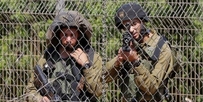
Israeli occupation forces have now deployed troops and equipment along the Lebanese border, and stepped up military activities in th region on Wednesday, according to Lebanese sources.
For the second consecutive day in a row, the army fired tear gas canisters at Lebanese herders and local farmers working near the border with the occupied Palestinian territories, The Daily Star reported, according to PNN.
“We were proceeding with our lives normally, and everyone was working their land. Then we saw the Israeli patrol and its members begin shooting tear gas at us,” Mustafa Ahmad, one of the herders, said.
On Tuesday, local residents said forces repeatedly shot tear gas canisters during the morning hours. Shortly after, a large number of Israeli military jeeps were stationed in an illegal Israeli settlement across the Lebanese village of Kfar Kila.
According to witness accounts, the military used trees and shrubs for cover, and monitored the movements within Lebanon as motorized patrols were conducted.
According to alBawaba, local sources say Israeli patrols along the border have increased in the past week, with Israeli soldiers taking up ambush positions in the area.
The activities have sparked fears among local residents, who question the motives behind Israel’s latest transgression, The Daily Star said.
Israel launched two wars on Lebanon, in 2000 and 2006. About 1,200 Lebanese, most of them civilians, lost their lives during the 33-day war in the summer of 2006.
For the second consecutive day in a row, the army fired tear gas canisters at Lebanese herders and local farmers working near the border with the occupied Palestinian territories, The Daily Star reported, according to PNN.
“We were proceeding with our lives normally, and everyone was working their land. Then we saw the Israeli patrol and its members begin shooting tear gas at us,” Mustafa Ahmad, one of the herders, said.
On Tuesday, local residents said forces repeatedly shot tear gas canisters during the morning hours. Shortly after, a large number of Israeli military jeeps were stationed in an illegal Israeli settlement across the Lebanese village of Kfar Kila.
According to witness accounts, the military used trees and shrubs for cover, and monitored the movements within Lebanon as motorized patrols were conducted.
According to alBawaba, local sources say Israeli patrols along the border have increased in the past week, with Israeli soldiers taking up ambush positions in the area.
The activities have sparked fears among local residents, who question the motives behind Israel’s latest transgression, The Daily Star said.
Israel launched two wars on Lebanon, in 2000 and 2006. About 1,200 Lebanese, most of them civilians, lost their lives during the 33-day war in the summer of 2006.
21 jan 2016
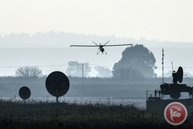
Israeli army UAV landing at an airfield in the Israeli-occupied Golan Heights, on Jan. 20, 2015
The Israeli military has finished training exercises in preparation for a potential “long-term, multi-front” conflict with Syria and Lebanon, according to a statement released by the army.
Major General Aviv Kochavi said, in the statement, that the training prepared military forces to “implement operational plans in all arenas, while facing Hezbollah and Palestinian Islamic Jihad, both in Syria and Lebanon.” The general added that forces “simulated vast maneuvers, substantial fire power, and attack of thousands of targets in all combat areas, with high efficiency, including residential areas exploited by the enemy."
Since conflict erupted in Syria in 2011, a number of rockets and mortar rounds -- mostly stray -- have hit the Israeli-occupied Golan, prompting occasional armed responses.
Israel has avoided large-scale involvement in the conflict in neighboring Syria, according to Ma'an, but opposes Bashar Assad’s regime and has reportedly carried out strikes on Iranian arms transfers, to Hezbollah, through Syria.
Last month, an Israeli airstrike in Syria's capital of Damascus killed top a Hezbollah official, Samir Kuntar, as well as several Syrian civilians, according to international media reports.
The day after three rockets were fired from southern Lebanon and landed in open areas in northern Israel, which responded with "targeted artillery fire" into southern Lebanon.
Lebanese security officials said at the time that the rockets launched into Israel were reportedly transported from Palestinian refugee camps in Lebanon, and launched by the Popular Front for the Liberation of Palestine movement, in "symbolic retaliation" for Kuntar's death.
The Israeli military has finished training exercises in preparation for a potential “long-term, multi-front” conflict with Syria and Lebanon, according to a statement released by the army.
Major General Aviv Kochavi said, in the statement, that the training prepared military forces to “implement operational plans in all arenas, while facing Hezbollah and Palestinian Islamic Jihad, both in Syria and Lebanon.” The general added that forces “simulated vast maneuvers, substantial fire power, and attack of thousands of targets in all combat areas, with high efficiency, including residential areas exploited by the enemy."
Since conflict erupted in Syria in 2011, a number of rockets and mortar rounds -- mostly stray -- have hit the Israeli-occupied Golan, prompting occasional armed responses.
Israel has avoided large-scale involvement in the conflict in neighboring Syria, according to Ma'an, but opposes Bashar Assad’s regime and has reportedly carried out strikes on Iranian arms transfers, to Hezbollah, through Syria.
Last month, an Israeli airstrike in Syria's capital of Damascus killed top a Hezbollah official, Samir Kuntar, as well as several Syrian civilians, according to international media reports.
The day after three rockets were fired from southern Lebanon and landed in open areas in northern Israel, which responded with "targeted artillery fire" into southern Lebanon.
Lebanese security officials said at the time that the rockets launched into Israel were reportedly transported from Palestinian refugee camps in Lebanon, and launched by the Popular Front for the Liberation of Palestine movement, in "symbolic retaliation" for Kuntar's death.
8 jan 2016
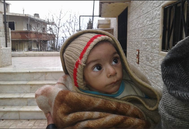
By Azzam Tamimi
Lebanon's Hezbollah was, until a few years ago, an inspiration to millions of people in the Middle East and around the world. It was a symbol of heroic resistance putting up a long fight to liberate the occupied territories of south Lebanon and continuing to stand up to Israeli aggression post-liberation.
There was a time when Hassan Nasrallah, Hezbollah's leader, was hailed as “master of the resistance”. His pictures were posted all over Palestinian refugee camps in Lebanon and were treasured by households across the Arab world. When he gave one of his usually long speeches, people were glued to TV sets and his Almanar satellite TV channel was no less popular than Al Jazeera itself. Many Palestinians truly believed Nasrallah was such a great resistance leader and they wished they had someone like him to lead their own resistance.
Yet today Hezbollah has lost much of the popular support and sympathy it once enjoyed and its leader Nasrallah is ridiculed and condemned by many of those who previously adored him. It is fighting a completely different type of war. Acting upon instructions from its sponsors in Tehran, where a reactionary clerical regime reigns, it is fighting a war in defence of a corrupt despotic regime that reigns in Damascus.
Unlike Hezbollah, Hamas, the Palestinian Islamic Resistance Movement – which saw itself as a partner of Hezbollah in the struggle against Zionism, refused to bow to pressure from the Iranians. Although Syria was, according to Hamas leader Khaled Meshaal, the best haven Hamas ever had outside Palestine, the movement opted to sacrifice all the privileges it had there so as to avoid taking any part in oppressing the Syrian people.
Since leaving Damascus four years ago, Meshaal turned down several invitations from the Iranians to visit Tehran, whose rulers made his visit a precondition for the resumption of any financial aid. Undoubtedly, the Syrian crisis drove deep a wedge between Hamas on the one hand and Hezbollah and Iran on the other.
Since the war started more than four years ago, there have been numerous reports of war crimes perpetrated by Hezbollah troops and other Iranian-sponsored Shia militias in various parts of Syria. Yet nothing has been as shocking as what Hezbollah is accused of perpetrating these days.
Videos and images coming out of the district of Madaya on the outskirts of Damascus are reminiscent of World War II images of concentration camp victims of Nazism. Men, women and children have been dying daily due to starvation and harsh winter weather. The victims and activists seeking to bring their plight to world attention have accused Hezbollah forces of laying siege to the district preventing any passage of aid to its several thousand inhabitants. The tragedy is that this was one of the Syrian districts that provided shelter to Lebanese pro-Hezbollah communities when they were forced to flee their towns and villages in the south of Lebanon when Israel waged its devastating July 2006 war against them.
Iran and Hezbollah, who both once claimed to stand in support of the oppressed in this world, are today tools of oppression, tormenting and persecuting the Syrian people. Both Hezbollah and its Iranian sponsor are equal partners with the Assad regime and bear responsibility for the millions who have fled their homes, the hundreds of thousands who have been killed and the many thousands who are today being starved to death.
Yet, Iran and Hezbollah would not have had a free hand to kill, maim and torture the Syrian population had it not been for an international community that seemed unbothered with what was going on. Regional and international players have had their own reckoning and their own priorities. Throughout the past four years, the United States and its Western allies had their eyes set on the goal of concluding a deal with Iran over its nuclear programme.
In order to guarantee themselves success they were keen not to provoke the Iranians or alienate them. At the same time, these Western powers, together with many regional ones, deemed it unhelpful to them for democratic transition to succeed anywhere in the Arab world lest it might deliver to power groups with which they shared little vision if any at all.
The only thing that seems to be worth the attention of the international community has been the war on terrorism, which means specifically the campaign targeting Sunni Islamic groups from the most extreme, such as the Islamic State (IS) group, to the most moderate such as the Muslim Brotherhood. The irony is that IS emerged and rose to prominence only after the Muslim Brotherhood's peaceful quest for democratisation was frustrated, particularly following the military coup in Egypt and the tragedy of Rabaa. We are yet to see what the tragedy of Syria's Madaya will unleash.
- Azzam Tamimi is a Palestinian British academic and chairman of Alhiwar TV Channel.
The article was published in the Middle East Eye website.
Lebanon's Hezbollah was, until a few years ago, an inspiration to millions of people in the Middle East and around the world. It was a symbol of heroic resistance putting up a long fight to liberate the occupied territories of south Lebanon and continuing to stand up to Israeli aggression post-liberation.
There was a time when Hassan Nasrallah, Hezbollah's leader, was hailed as “master of the resistance”. His pictures were posted all over Palestinian refugee camps in Lebanon and were treasured by households across the Arab world. When he gave one of his usually long speeches, people were glued to TV sets and his Almanar satellite TV channel was no less popular than Al Jazeera itself. Many Palestinians truly believed Nasrallah was such a great resistance leader and they wished they had someone like him to lead their own resistance.
Yet today Hezbollah has lost much of the popular support and sympathy it once enjoyed and its leader Nasrallah is ridiculed and condemned by many of those who previously adored him. It is fighting a completely different type of war. Acting upon instructions from its sponsors in Tehran, where a reactionary clerical regime reigns, it is fighting a war in defence of a corrupt despotic regime that reigns in Damascus.
Unlike Hezbollah, Hamas, the Palestinian Islamic Resistance Movement – which saw itself as a partner of Hezbollah in the struggle against Zionism, refused to bow to pressure from the Iranians. Although Syria was, according to Hamas leader Khaled Meshaal, the best haven Hamas ever had outside Palestine, the movement opted to sacrifice all the privileges it had there so as to avoid taking any part in oppressing the Syrian people.
Since leaving Damascus four years ago, Meshaal turned down several invitations from the Iranians to visit Tehran, whose rulers made his visit a precondition for the resumption of any financial aid. Undoubtedly, the Syrian crisis drove deep a wedge between Hamas on the one hand and Hezbollah and Iran on the other.
Since the war started more than four years ago, there have been numerous reports of war crimes perpetrated by Hezbollah troops and other Iranian-sponsored Shia militias in various parts of Syria. Yet nothing has been as shocking as what Hezbollah is accused of perpetrating these days.
Videos and images coming out of the district of Madaya on the outskirts of Damascus are reminiscent of World War II images of concentration camp victims of Nazism. Men, women and children have been dying daily due to starvation and harsh winter weather. The victims and activists seeking to bring their plight to world attention have accused Hezbollah forces of laying siege to the district preventing any passage of aid to its several thousand inhabitants. The tragedy is that this was one of the Syrian districts that provided shelter to Lebanese pro-Hezbollah communities when they were forced to flee their towns and villages in the south of Lebanon when Israel waged its devastating July 2006 war against them.
Iran and Hezbollah, who both once claimed to stand in support of the oppressed in this world, are today tools of oppression, tormenting and persecuting the Syrian people. Both Hezbollah and its Iranian sponsor are equal partners with the Assad regime and bear responsibility for the millions who have fled their homes, the hundreds of thousands who have been killed and the many thousands who are today being starved to death.
Yet, Iran and Hezbollah would not have had a free hand to kill, maim and torture the Syrian population had it not been for an international community that seemed unbothered with what was going on. Regional and international players have had their own reckoning and their own priorities. Throughout the past four years, the United States and its Western allies had their eyes set on the goal of concluding a deal with Iran over its nuclear programme.
In order to guarantee themselves success they were keen not to provoke the Iranians or alienate them. At the same time, these Western powers, together with many regional ones, deemed it unhelpful to them for democratic transition to succeed anywhere in the Arab world lest it might deliver to power groups with which they shared little vision if any at all.
The only thing that seems to be worth the attention of the international community has been the war on terrorism, which means specifically the campaign targeting Sunni Islamic groups from the most extreme, such as the Islamic State (IS) group, to the most moderate such as the Muslim Brotherhood. The irony is that IS emerged and rose to prominence only after the Muslim Brotherhood's peaceful quest for democratisation was frustrated, particularly following the military coup in Egypt and the tragedy of Rabaa. We are yet to see what the tragedy of Syria's Madaya will unleash.
- Azzam Tamimi is a Palestinian British academic and chairman of Alhiwar TV Channel.
The article was published in the Middle East Eye website.
Page: 2 - 1
